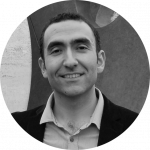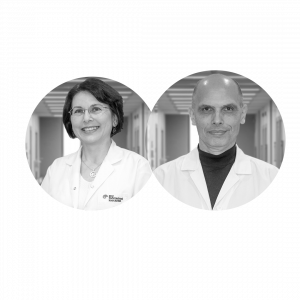Calls for Spring 2024 KOLT Teaching Improvement Grants
KOLT grant program is now open for applications for the Spring semester of 2024. Five different calls with different emphases are open for this year. Please find the details of these calls below:
- Call for KOLT Faculty Learning Communities (FLCs)
- Call for Virtual Exchange Projects
- Call for Teach, Research and Publish
- Call for Gender Inclusive Teaching
- Call for Artificial Intelligence (AI) Applications in Courses
Eligibility: Koç University faculty members or instructors are eligible to apply for this grant program.
Funding: 25.000 TRY
Deadline: Please submit your Spring 2024 proposals until February 1st, 2024 via e-mail at kolt@ku.edu.tr.
Application Form & Documents: Please use for your application. And please remember to include your CV, proposed syllabus, and other relevant documents.
Videos: Please visit KOLT Blackboard Faculty Page for TIG info session videos, grant recipients’ dissemination videos and remarks.
Please click on the link to view the details of each call.
Application Form
TIG Info Session Video
Spring 2022 Call for Proposals KOLT Teaching Improvement Grants
Click the heading to open the document.
Recipients
1) Realizing a hybrid design studio for teaching basic design
Assist. Prof. Aykut Çoşkun, Media and Visual Arts
 Design studio classes are driven by three major teaching techniques: learning by doing, design critique and reflection in/on action. Physical involvement with the design task and face-to-face interaction with peers and instructors are required to support students’ learning and success in design studios. It is challenging to meet this requirement in a hybrid design studio, since i) students attending to the class online would lack the chance to see what others are doing in real time and to receive direct and situated feedback from the instructor, and ii) when online and in-class students are teamed up in a group exercise, the teams’ effectives might be low due to the different mediums they use. The purpose of this proposal is to realize the idea of hybrid design studio by designing activities to address these challenges in the scope of MAVA 104 Basic Design, as well as to disseminate how these activities are applied in the course so that the same goal could be achieved for other practical courses at Koç University. The first goal will be achieved through interactive lectures, sessions for individual and group exercises, synchronous and asynchronous feedback sessions, and reflection sessions. Zoom, Miro, EpocCam, and Slack will be used to enable student’s participation to these hybrid sessions. The second goal will be achieved by running a workshop with faculty members, who teach practical studio courses.
Design studio classes are driven by three major teaching techniques: learning by doing, design critique and reflection in/on action. Physical involvement with the design task and face-to-face interaction with peers and instructors are required to support students’ learning and success in design studios. It is challenging to meet this requirement in a hybrid design studio, since i) students attending to the class online would lack the chance to see what others are doing in real time and to receive direct and situated feedback from the instructor, and ii) when online and in-class students are teamed up in a group exercise, the teams’ effectives might be low due to the different mediums they use. The purpose of this proposal is to realize the idea of hybrid design studio by designing activities to address these challenges in the scope of MAVA 104 Basic Design, as well as to disseminate how these activities are applied in the course so that the same goal could be achieved for other practical courses at Koç University. The first goal will be achieved through interactive lectures, sessions for individual and group exercises, synchronous and asynchronous feedback sessions, and reflection sessions. Zoom, Miro, EpocCam, and Slack will be used to enable student’s participation to these hybrid sessions. The second goal will be achieved by running a workshop with faculty members, who teach practical studio courses.
2) Using Music in Teaching Political History Around the World
Assoc. Prof. Boğaç Erozan, International Relations
 The project is about building a world-wide database of political music, that can be used by several courses and can remain at the library for interested students and faculty. Political music of a country includes songs about their distant or contemporary political history. Some important politico-historical events, struggles, characters usually find their reflection in music. Our job is to find them. Then we’ll find or do an English translation ourselves, compiling lyrics with music or, if available, a music video. A group of students specially commissioned for the project will bring together music and lyrics on political history of very diverse countries such as Viet Nam, Chile, Kenya, Guatemala. If available a music video –if not just the music – will be provided together with lyrics in English. The starting point will be Asia, Africa, Central and Latin America. The short term goal is to build an archive of 30 countries.
The project is about building a world-wide database of political music, that can be used by several courses and can remain at the library for interested students and faculty. Political music of a country includes songs about their distant or contemporary political history. Some important politico-historical events, struggles, characters usually find their reflection in music. Our job is to find them. Then we’ll find or do an English translation ourselves, compiling lyrics with music or, if available, a music video. A group of students specially commissioned for the project will bring together music and lyrics on political history of very diverse countries such as Viet Nam, Chile, Kenya, Guatemala. If available a music video –if not just the music – will be provided together with lyrics in English. The starting point will be Asia, Africa, Central and Latin America. The short term goal is to build an archive of 30 countries.
3) Whiteboard Animation Videos for Flipped Classroom
Dr. E. Çetin Gürer, Academic Writing Center

The flipped classroom is a pedagogical technique that reverses the traditional classroom order of lecture and homework by assigning lecture content in video format. Students are expected to watch these videos before class, which makes more room for their questions, hands-on exercises, class discussions, and group works. Such reversal aims at transforming the class time into an active learning environment while still ensuring the delivery of lecture content. However, assigning video lectures as homework has its downsides. Lengthy and often monotonous educational videos have low engagement rates and students tend to lose focus easily. That bears the risk of failing to convey the lecture contents or requiring the instructor to go over them in class at length taking time from active learning exercises. This project aims at searching for a remedy to that problem by applying a recently digitalized method in video-making called whiteboard animation. This video style conveys educational content with dynamic visuals that appears to be drawn with an animated hand on a whiteboard. While it normally is an arduous and time-consuming process that involves stop-motion techniques and actual hand-drawn graphics, with the development of user-friendly animation software, it is more accessible to instructors for classroom use. After consultations with the KOLT digital technologies team, I have decided to use Powtoon as the said software to animate my lecture videos. Its Coursera training included in the Koç University institutional subscription was also a factor in this decision. I am excited to go through this creative pedagogical experiment in collaboration with KOLT and its excellent team.
4) Integration of Prescribing Skill Development To The 3rd-Year Pharmacology Education at Koç University School Of Medicine
Prof. Dr. Sinem Ezgi Gülmez, School of Medicine & Prof. Dr. Hakan Sedat Orer, Koç University Research Center For Translational Medicine
 Pharmacology and pharmacotherapy teaching in many medical schools is often limited to the simple transfer of knowledge on drugs, lacking the acquisition of essential patient management skills such as choosing a drug, prescribing, and managing the treatment. Our current pharmacology education curriculum at KUSOM includes theoretical pharmacology lectures (3rd-year), RPHM 406 Rational Pharmacotherapy Clerkship (4th-year), clinical pharmacology lectures (5th-year) and rational use of medicines discussion hours with interns (6th-year). The Rational Pharmacotherapy Clerkship program is designed after Groningen University’s rational pharmacotherapy program, aiming to develop analytical prescribing skills through a series of problem-based learning (PBL) sessions facilitated by pharmacology faculty. Since 2021-2022, we have integrated the British Pharmacology Society (BPS) “Prescription Safety Assessment (PSA)” into the clerkship program to support the students in developing their prescribing skills and allowing benchmarking in an international setting. For each clerkship group, one of the six specific indications or conditions is chosen to keep the coverage fresh, which is a must to keep the tutors’ and the students’ highly engaged and motivated: Essential hypertension, pain management, asthma, peptic ulcer/GERD, respiratory tract infections, urinary tract infections. The integration of prescribing skill development to the 3rd-year pharmacology education is designed as an activity where the students will be asked to prepare flashcards for the drugs in coherence with the core of the 4th-year rational pharmacotherapy clerkship, incorporating the theoretical knowledge of the 3rd-year pharmacology lectures: Mechanism of action, Indications, Usual doses with ranges, Adverse drug reactions, Cautions, Contraindications, Important drug-drug, drug-food, drug-disease interactions, Notes for specific populations, Cost. Our goal is to have a “continuous pharmacology and rational pharmacotherapy training”, an essential professional skill for a physician, starting from the 3rd-year of medical school until graduation. Once fully accomplished, such a progressive and integrated approach will be the first in Turkish medical education history.
Pharmacology and pharmacotherapy teaching in many medical schools is often limited to the simple transfer of knowledge on drugs, lacking the acquisition of essential patient management skills such as choosing a drug, prescribing, and managing the treatment. Our current pharmacology education curriculum at KUSOM includes theoretical pharmacology lectures (3rd-year), RPHM 406 Rational Pharmacotherapy Clerkship (4th-year), clinical pharmacology lectures (5th-year) and rational use of medicines discussion hours with interns (6th-year). The Rational Pharmacotherapy Clerkship program is designed after Groningen University’s rational pharmacotherapy program, aiming to develop analytical prescribing skills through a series of problem-based learning (PBL) sessions facilitated by pharmacology faculty. Since 2021-2022, we have integrated the British Pharmacology Society (BPS) “Prescription Safety Assessment (PSA)” into the clerkship program to support the students in developing their prescribing skills and allowing benchmarking in an international setting. For each clerkship group, one of the six specific indications or conditions is chosen to keep the coverage fresh, which is a must to keep the tutors’ and the students’ highly engaged and motivated: Essential hypertension, pain management, asthma, peptic ulcer/GERD, respiratory tract infections, urinary tract infections. The integration of prescribing skill development to the 3rd-year pharmacology education is designed as an activity where the students will be asked to prepare flashcards for the drugs in coherence with the core of the 4th-year rational pharmacotherapy clerkship, incorporating the theoretical knowledge of the 3rd-year pharmacology lectures: Mechanism of action, Indications, Usual doses with ranges, Adverse drug reactions, Cautions, Contraindications, Important drug-drug, drug-food, drug-disease interactions, Notes for specific populations, Cost. Our goal is to have a “continuous pharmacology and rational pharmacotherapy training”, an essential professional skill for a physician, starting from the 3rd-year of medical school until graduation. Once fully accomplished, such a progressive and integrated approach will be the first in Turkish medical education history.
Every semester, KOLT provides Teaching Improvement Grants to the faculty members who would like to experiment with any of the following items:
- Preparing a new COURSERA course (a massive open online course);
- Course design that uses educational technologies (course videos, online quizzes, clickers, vPads, wikis, blogs, podcasts, e-portfolios and social media) to develop online supplementary course resources, online assessment methods, collaborative activities on Blackboard or Moodle (Koç University Learning Management Systems);
- Course design that promotes “flipped classroom” by using Blackboard or Moodle;
- Joint teaching projects within Koç University or with external partners to start interdisciplinary and transdisciplinary faculty collaboration;
- Course design that promotes active learning and critical thinking;
- Curriculum enhancements by faculty from different departments: qualitative and quantitative evaluation (survey, focus groups, interviews and observations) of courses in terms of learning outcomes, content, delivery and assessment to strengthen the link among sequence of courses;
- Any innovative solution to the problems raised in the mid-semester course evaluation of the faculty applying for the grant.
Each semester, we support up to 6 proposals.
KOLT organizes showcase events to celebrate teaching innovations at Koç University.
